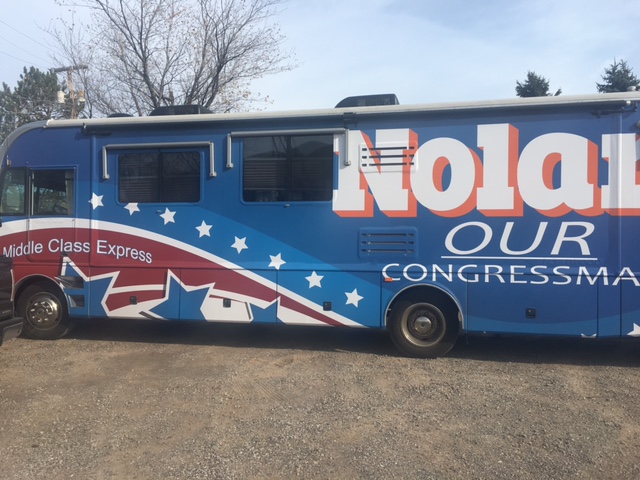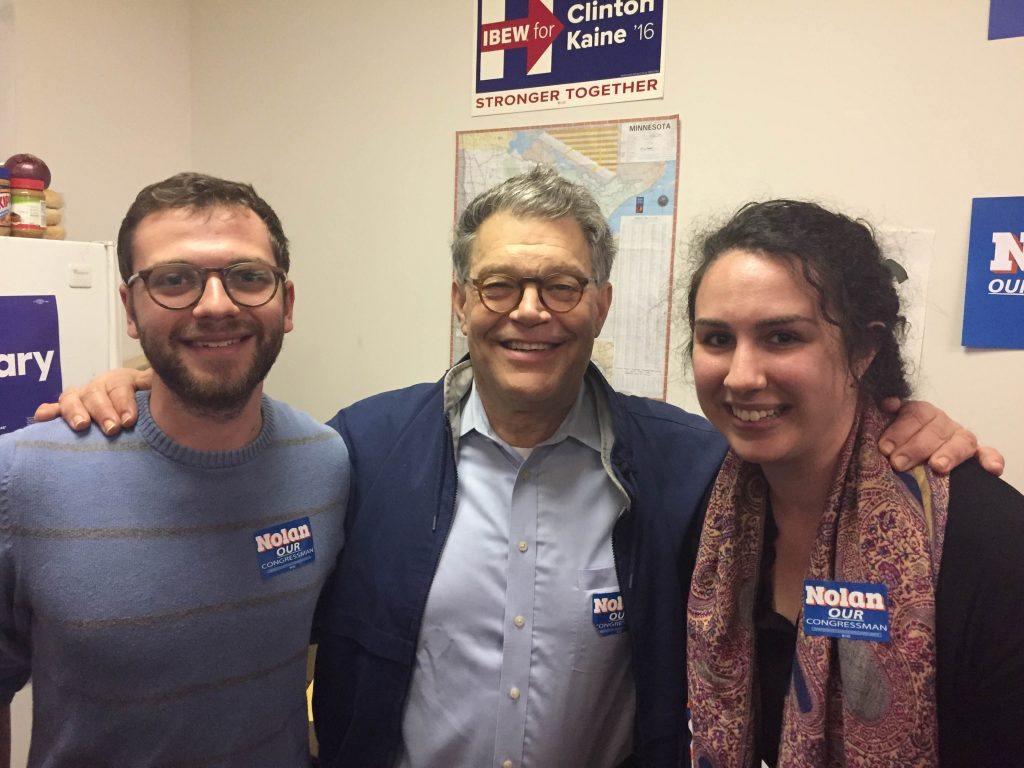- About Us
- Policy Center
- Learn
- Press Room
- Blog
- Get Involved
- Donate
- Donate to J Street Online
- Make a Gift in Someone’s Honor or Memory
- Make a Monthly Gift
- Tax-Deductible Donations
- Giving by mail
J Street’s blog aims to reflect a range of voices. The opinions expressed in blog posts do not necessarily reflect the policies or view of J Street.
Everyone told me to bring a coat to Minnesota. Little did they know it would be sixty and sunny every day. I accidentally left my coat at home. Joke’s on them. That is, until I jumped into Lake Superior (at the suggestion of my host) and almost froze to death. I still can’t feel my toes.

Supporting Congressman Rick Nolan – the pro-Israel, pro-peace, pro-democracy candidate for MN-08.
Freezing lake aside, there’s something about that gorgeous weather that perfectly captures the political temperature of Minnesota’s 8th. Working on J Street endorsee Rick Nolan’s campaign out of the Duluth Labor Temple is among the warmest things I’ve ever witnessed in politics. It’s not that I was expecting it to be cold as much as that I’ve been so rejuvenated by the shared sense of community and solidarity that permeates the campaign.
Minnesota’s party politics are a little different than the rest of the country’s. The state doesn’t technically put Democrats on the ballot. Instead, the state party is called the Democratic Farmer Labor party (DFL), which is affiliated with the Democratic party nationally. The DFL has deep roots in Minnesota’s labor movement. Minnesota’s 8th – which encompasses an area roughly the size of West Virginia – is almost entirely comprised of towns and cities whose economies were once or are still fueled by metals mined from the nearby Iron Range.
Labor organizing is hard-baked into the DFL’s political machine. Many of the volunteers I’ve met and voters I’ve spoken with come from families who’ve been involved with both labor and the DFL for decades. They’ve described to me the ways in which free trade agreements, widening wage-gaps and threats to the social safety net have ravaged working families and contributed to a palpable sense of economic anxiety. It makes perfect sense then that Labor fuels the DFL’s Get Out the Vote (GOTV) operation and provides a ready-made organizing infrastructure that’s been a consistent boon to the DFL’s efforts.
As an immigrant who came straight from Hong Kong to the DC-area, the concept of families with such storied political history isn’t something I’ve experienced firsthand. I’ve often heard people talk about relationships as the building block of political organizing, but feel that I’ve gained a new understanding of what it means in Duluth. Senator Al Franken won his Senate election here by just 312 votes. Rick Nolan’s race is also likely to be close. Between the relational nature of the organizing culture here and the precedent for tight races, the work I’ve gotten to do has felt incredibly tangible. Every long day of making calls and knocking on doors could easily translate into those few crucial votes that propel Rick Nolan to victory and secure a brighter future for working families in Minnesota’s 8th.

J Street staff Benjy and Alyson with Sen. Al Franken in MN
That’s not something I have the privilege to experience every day in Washington, DC, but it’s something worth taking back there. The sense that your political work can have such a tangible, immediate impact on other people’s lives is important fuel, especially when you work on painful issue that has persisted for half a century. I look forward to carrying it with me through the election, and as we turn to the next administration come January, when it will most certainly be below 60 degrees. On our issue, we’re bound to need it.